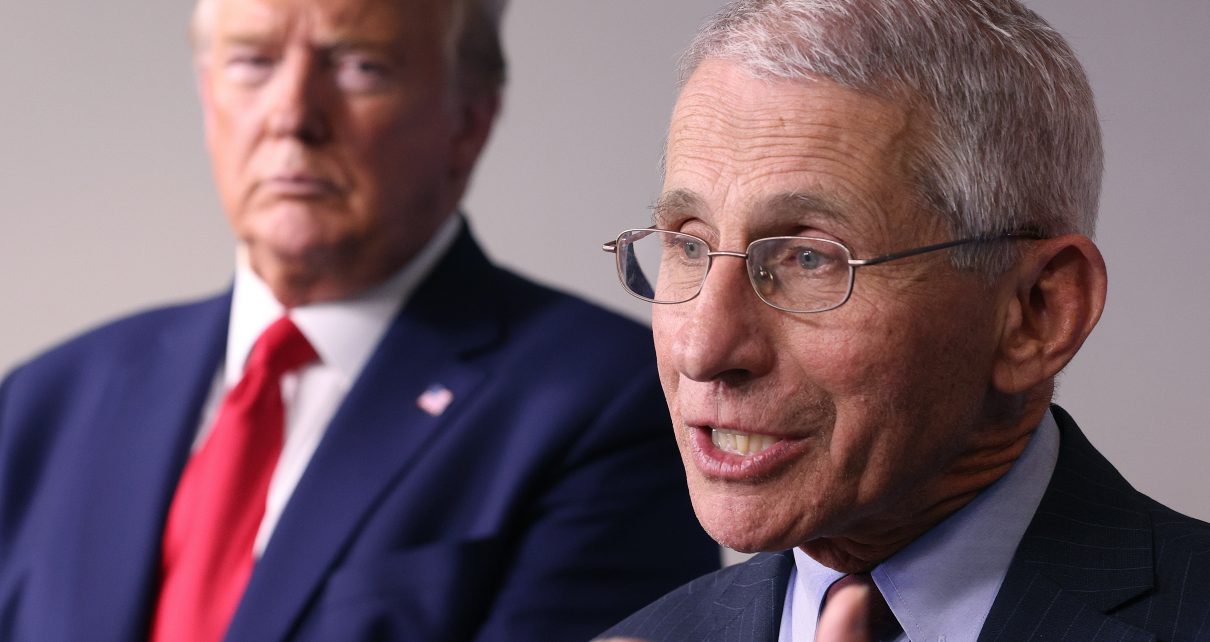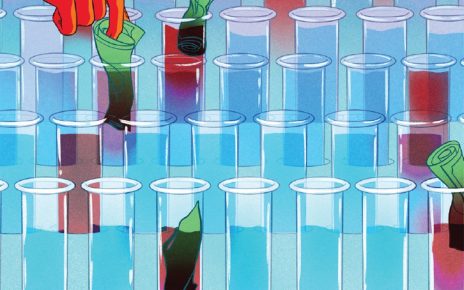President Trump and other politicians have often criticized scientists like Anthony Fauci, director of the National Institute of Allergy and Infectious Diseases, the frequent public face of science during COVID-19 times. While scientists widely agree on the severity of the disease and measures needed to combat it, some politicians, notably including the president, have not followed their lead.
Liberals often portray conservatives as not believing in science, but evidence we have collected suggests that most Americans across the political aisle believe that scientists studying the pandemic understand the situation. Rather, it is trust in scientists’ values where Americans strongly diverge in their perspectives.
To identify the divergence between beliefs about scientists’ competence versus their values, we fielded a study in early May—a national survey of over 1,500 Americans. We wanted to find out how much influence Americans think scientists who study pandemics should have in deciding what to do about the coronavirus.
The good news for those who want scientific expertise to have a seat at the table is that 65 percent of the public wanted scientists to have a great deal of influence, and another 25 percent wanted a fair amount of influence. Only 7 percent wanted little influence, with only 3 percent saying “none at all.” A majority want strong influence, but this is coupled with an undercurrent of skepticism, which is stronger for conservatives who are more likely these days to have the ear of Federal policy makers.
We also asked how well scientists who study pandemics understand the spread of coronavirus: among five possible responses, almost half selected the choice at the “very well” end of the spectrum. Only eight percent selected “not at all.” The public generally believes in the expertise of scientists, so why is there any opposition to scientists’ involvement in policymaking about COVID-19?
The answer is values. We also asked respondents how much they agree with the following statement: “If scientists who study pandemics have to make life and death decisions during the pandemic, the values they use will be consistent with mine.” While few strongly disagreed with this statement, the responses were much more divided than the questions about scientists’ understanding. Importantly, the most commonly selected answer was the ambivalent “neither agree nor disagree.” Many Americans believe scientists’ claims about nature, but they believe that these claims come with a set of values that may not align with their own and thus may be concerned that these make their way into scientific recommendations.
Part of the challenge for scientists like Fauci is that the view that scientists are using values not shared by the public is more likely to be held by Trump’s base—that is, Republicans; those who live in nonmetropolitan areas; those with less formal education; men; and lower income men in particular. These are also the groups that tend to support the values of “the people” over those of “the elites”—which includes scientists. Regardless of how much the Trump base believes in scientists’ abilities, they are less likely to believe that scientists share their values.
This dynamic puts scientists like Fauci in a difficult bind. On the one hand, the medical profession does advocate certain values, such as the paramount importance of saving lives. It would be difficult for him not to voice that value when he speaks, as all of his science is in service of this value.
But given that many think scientists’ values do not correspond with their own, whenever Fauci says the word “should,” it reminds people that he is advocating values, thereby potentially undermining his role. If this distrust leads to people not wanting scientists to be at the table the way Fauci often seems to be excluded, then policy decisions may be less than optimally fact-based.
To help earn the trust of more conservative Americans, Fauci may be best served by focusing on descriptions rather than proscriptions, which policy makers can then translate to their constituents in terms of actionable steps. But he may be the only person in the room advocating for the value of prioritizing the health of the population. It is hard to argue with this approach, but it is important to recognize the nature of the dilemma he is facing.




